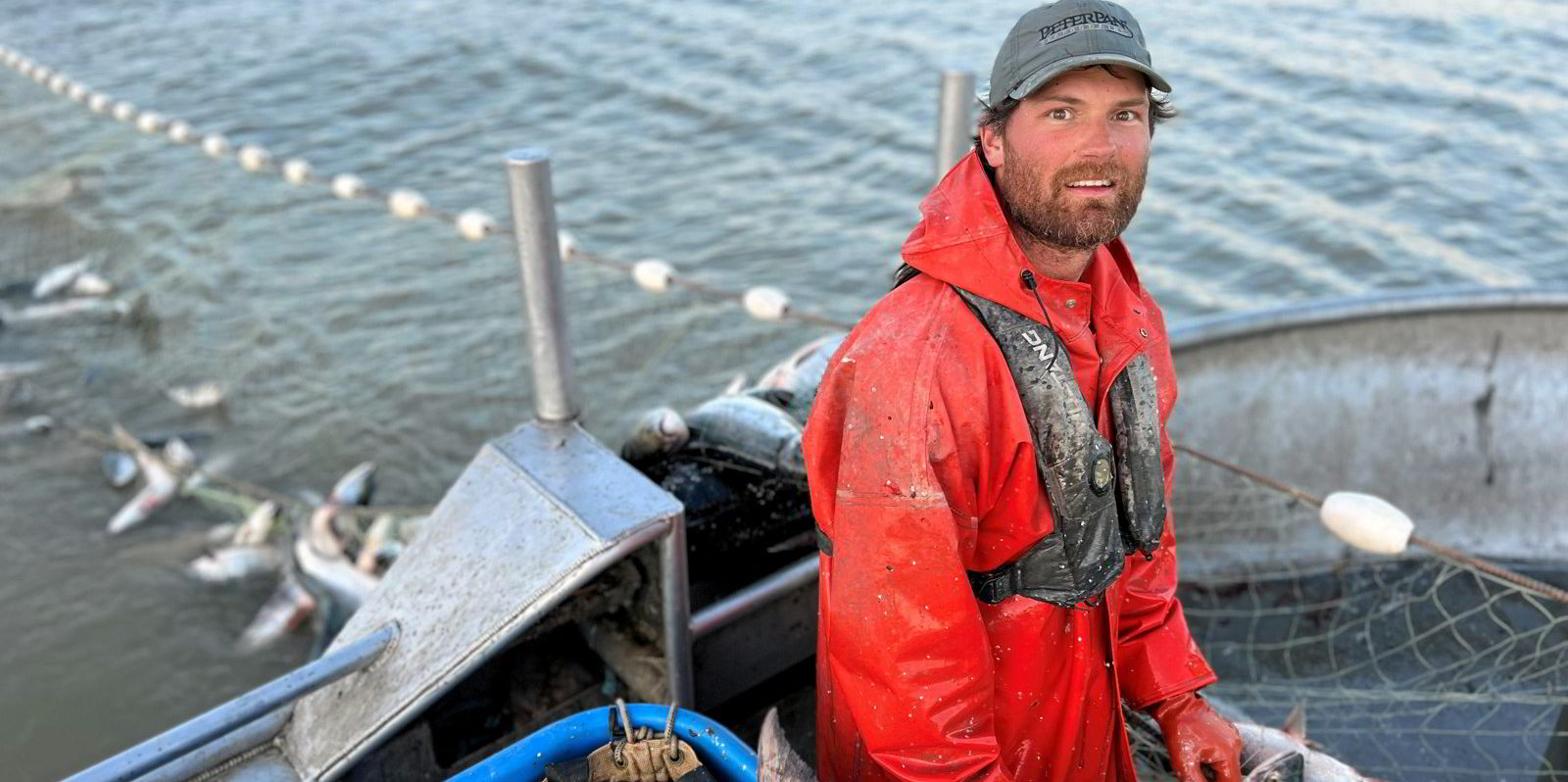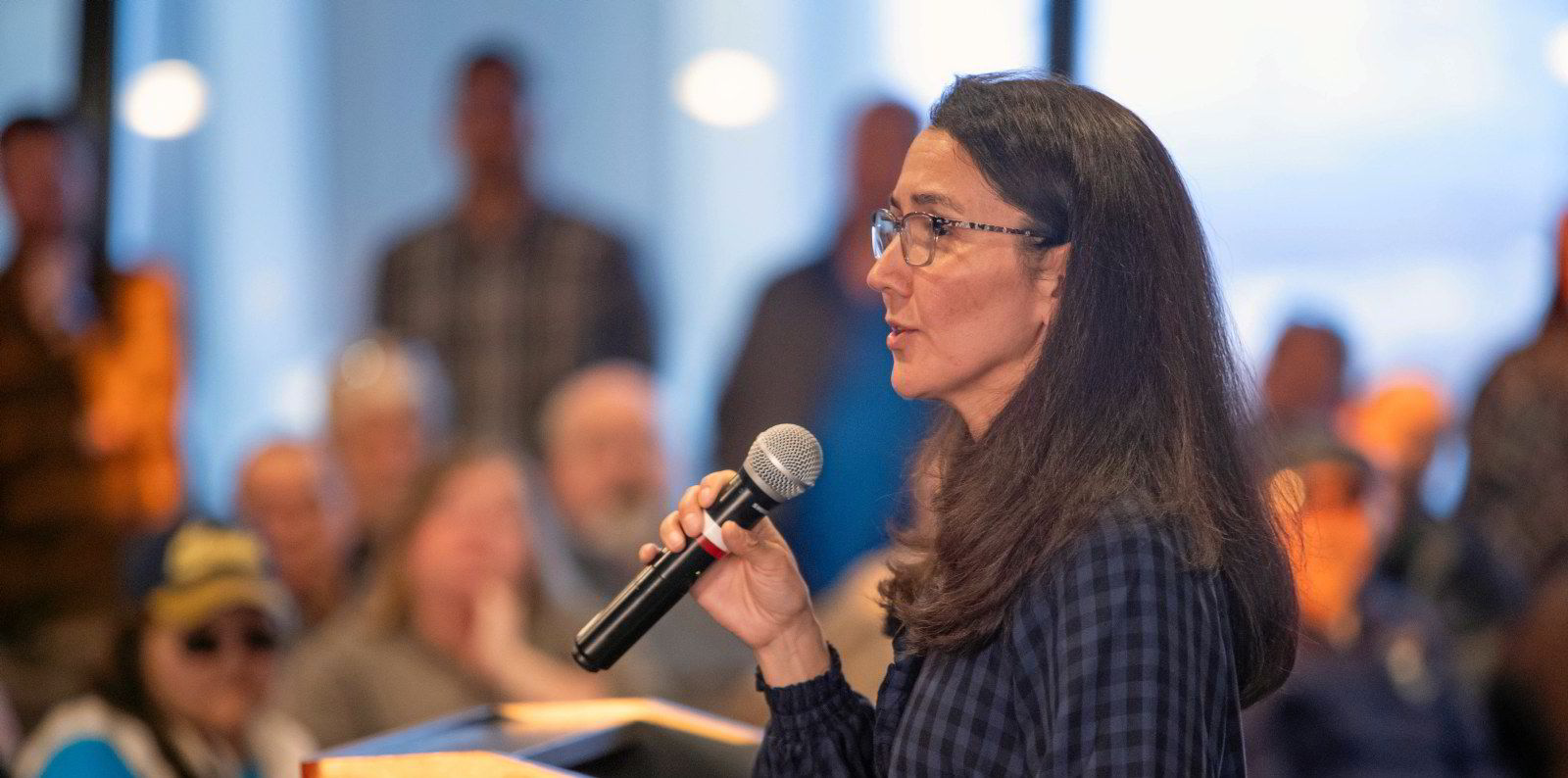The Bristol Bay Regional Salmon Association (BBRSDA), a fishermen-supported marketing group, is asking fishermen to support a petition calling on the Alaska Department of Labor to intervene as a mediator in disputing ex-vessel prices for Bristol Bay sockeye salmon in the 2022 and 2023 seasons.
Bristol Bay salmon fishermen upset over the base price paid by processors that is less than half of what they received last season, are looking for ways to change how prices in the bay are determined and set.
Trident Seafoods was the first processor this year to announce its base price to fishermen of 50 cents per pound for sockeye, dramatically less than last year when fishermen received a base price of $1.15 (€1.07). The processor made the announcement as fishing was winding down.
Anger over the price, which was largely matched by the other processors in the bay, led to a protest on July 20, during which an estimated 100 fishermen anchored their vessels in the mouth of the Naknek River, one of the bay's most product salmon rivers, in hopes of drawing public attention to a pay structure they say is opaque and unfair.
The BBRSDA petition said a mediation process can be put in motion if 930 permit holders, a third of the total drift and setnet permit holders, sign the petition.
"Bristol Bay fishermen want a complete, transparent explanation as to why major processors set the base price for sockeye salmon at 50 cents per pound in 2023. Had that price been known prior to the season, many fishermen might never have launched their vessels and risked the financial hardship many now face," the petition said.
BBRSDA said that based on data compiled by the State of Alaska, gross margin for Alaska salmon processors increased 19 percent in 2022 for sockeye salmon, while ex-vessel value increased by just 8 percent.
"These data suggest that when harvests are robust, as in 2022, and total first wholesale sales value was high, processors benefitted more than fishermen, yet when wholesale prices fell in 2023 the pain was largely transferred to commercial fishermen," according to the petition.
In the days that followed this year's protest in the Naknek River, social media pages frequented by bay fishermen lit up with discussions of how to remedy the price situation before the start of the 2024 season next June.
David Couch, who fishes for North Pacific Seafoods, which is owned by Canadian salmon company Canfisco, posted on the Bristol Bay Fishermen Facebook page that he was "putting together an email list to send info about possible price negotiations for next year."
Couch, who owns the F/V Icarus, wrote in the post that Canfisco said it might be "open to sitting down at a table with a negotiator."
He told IntraFish he had an informal meeting with "one of the heads of operations."
"I asked him, do you think that this organization would sit down for maybe pre-season talks about prices and maybe some transparency so we can see what is going on into the season, maybe even talking about some type of negotiation with the fishermen taking some part of the risk for a percentage later one," he told IntraFish.
"The answer I was given is, I see no reason we wouldn't sit down with a negotiator, but I also have to run this up the chain."
Dave Morris, president of the Canfisco Group, declined to comment on any potential for negotiations when reached by IntraFish.
Couch said he was in communication with BBRSDA, but it is unclear if he is involved in that group's petition to the state.
"While this petition ought to provide some independent investigation and transparency about the 2023 base price, the mediation process afforded by Alaska Statute 16.10.280 does not guarantee price will actually change," BBRSDA warned its fishermen, who support the group through a 1 percent levy on the ex-vessel value of their catch.
"BBRSDA believes the best path towards achieving mutual agreement on price would be for fishermen and processors to negotiate directly prior to the season. For that to work, and to avoid a strike, both fishermen and processors must be willing to engage in negotiation to create some sort of price agreement."
In 2006, drift permit-holders in Bristol Bay approved a 1 percent assessment on their harvests to support the BBRSDA, and thereby assured the organization a baseline level of funding tied to their own fishing income. This assessment could be used to support price negotiations between fishermen and processors, or to pay for lobbying expenses, according to the BBRSDA.
"The challenge in achieving some type of collective bargaining or price negotiation arrangement isn't whether BBRSDA could provide funding support. Guidance we've received from the state of Alaska indicates the BBRSDA assessment is not considered state financial assistance, and therefore does not come with the same prohibitions as would a state grant, for instance," Wink, told IntraFish recently.
"The challenge," Wink said, "is could processors and fishermen both agree to some sort of a deal, and if not on the processor side, what choices does that leave fishermen? There are only a few primary processors in Bristol Bay," he added.
"Deciding on a pricing agreement isn't up to BBRSDA, it's up to fishermen and processors, but we could provide funding support if that's what our members want and if it would represent an improvement to the commercial fishery in Bristol Bay."
Read more
- Russia bans more seafood imports from 'unfriendly' countries, including US, EU and Norway
- Pack of fish fingers in UK costs 22% more than a year ago as retail seafood sales continue to slide
- With Bristol Bay sockeye harvests winding down, Alaska's pink salmon season takes center stage -- and things are heating up




